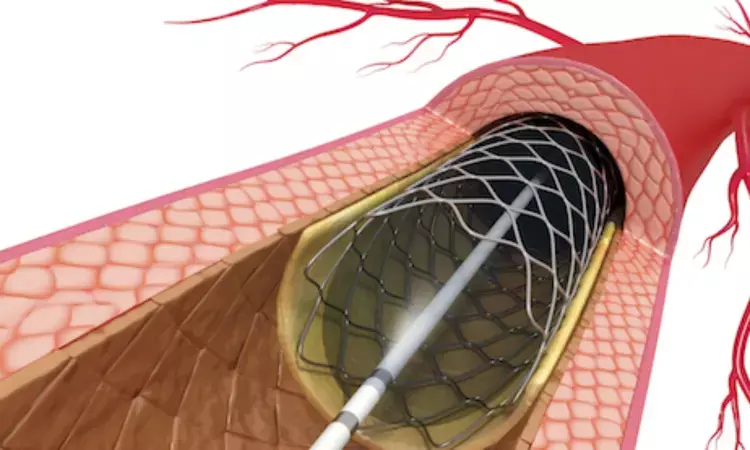- Home
- Medical news & Guidelines
- Anesthesiology
- Cardiology and CTVS
- Critical Care
- Dentistry
- Dermatology
- Diabetes and Endocrinology
- ENT
- Gastroenterology
- Medicine
- Nephrology
- Neurology
- Obstretics-Gynaecology
- Oncology
- Ophthalmology
- Orthopaedics
- Pediatrics-Neonatology
- Psychiatry
- Pulmonology
- Radiology
- Surgery
- Urology
- Laboratory Medicine
- Diet
- Nursing
- Paramedical
- Physiotherapy
- Health news
- Fact Check
- Bone Health Fact Check
- Brain Health Fact Check
- Cancer Related Fact Check
- Child Care Fact Check
- Dental and oral health fact check
- Diabetes and metabolic health fact check
- Diet and Nutrition Fact Check
- Eye and ENT Care Fact Check
- Fitness fact check
- Gut health fact check
- Heart health fact check
- Kidney health fact check
- Medical education fact check
- Men's health fact check
- Respiratory fact check
- Skin and hair care fact check
- Vaccine and Immunization fact check
- Women's health fact check
- AYUSH
- State News
- Andaman and Nicobar Islands
- Andhra Pradesh
- Arunachal Pradesh
- Assam
- Bihar
- Chandigarh
- Chattisgarh
- Dadra and Nagar Haveli
- Daman and Diu
- Delhi
- Goa
- Gujarat
- Haryana
- Himachal Pradesh
- Jammu & Kashmir
- Jharkhand
- Karnataka
- Kerala
- Ladakh
- Lakshadweep
- Madhya Pradesh
- Maharashtra
- Manipur
- Meghalaya
- Mizoram
- Nagaland
- Odisha
- Puducherry
- Punjab
- Rajasthan
- Sikkim
- Tamil Nadu
- Telangana
- Tripura
- Uttar Pradesh
- Uttrakhand
- West Bengal
- Medical Education
- Industry
Lower mortality rates seen with pharmaco-invasive strategy than late primary PCI in STEMI patients

Australia: A recent study has shown that for STEMI patients who cannot undergo timely primary percutaneous coronary intervention (pPCI), a pharmco-invasive approach should be considered as it achieves better outcomes than late primary PCI.
The study featured in the European Heart Journal found that patients who underwent late pPCI (>120 min from first medical contact) had higher mortality rates than those undergoing a pharmaco-invasive strategy. Also, long-term bleeding, myocardial infarction, and stroke rates were comparable among the groups.
Pharmaco-invasive PCI (PI-PCI) is recommended for ST-elevation myocardial infarction (STEMI) patients who cannot undergo primary PCI. John Kerswell French, School of Medicine, Western Sydney University, Gilchrist Drive, Sydney, Australia, and colleagues examined late outcomes after PI-PCI (successful reperfusion followed by scheduled PCI or failed reperfusion and rescue PCI) versus timely and late pPCI.
The study included all STEMI patients presenting within 12 h of symptom onset who underwent PCI during their initial hospitalization at Liverpool Hospital in Sydney. Amongst 2091 STEMI patients, 80% were made, 52% underwent pPCI (68% timely, 32% late), and 48% received PI-PCI (67% scheduled, 33% rescue).
The authors reported the following findings:
- Mortality at three years was 11.1% after pPCI (6.7% timely, 20.2% late) and 6.2% after PI-PCI (9.4% rescue, 4.8% scheduled).
- After propensity matching, the adjusted mortality hazard ratio (HR) for timely pPCI compared with scheduled PCI was 0.9 and compared with rescue PCI; it was 0.5.
- The adjusted mortality HR for late pPCI, compared with scheduled PCI, was 2.2; compared with rescue PCI, it was 1.5.
"Patients who underwent primary PCI had greater mortality rates than those undergoing a pharmaco-invasive strategy," the researchers wrote. "A pharmaco-invasive approach should be considered in cases where delays to PCI are anticipated despite rescue PCI being required in a third of patients, as it gives better outcomes than late primary PCI."
Reference:
Javeria Jamal, Hanan Idris, Amir Faour, Wesley Yang, Alison McLean, Sonya Burgess, Ibrahim Shugman, Kathryn Wales, Aiden O'Loughlin, Dominic Leung, Christian Julian Mussap, Craig Phillip Juergens, Sidney Lo, John Kerswell French, Late outcomes of ST-elevation myocardial infarction treated by pharmaco-invasive or primary percutaneous coronary intervention, European Heart Journal, 2022;, ehac661, https://doi.org/10.1093/eurheartj/ehac661
Dr Kamal Kant Kohli-MBBS, DTCD- a chest specialist with more than 30 years of practice and a flair for writing clinical articles, Dr Kamal Kant Kohli joined Medical Dialogues as a Chief Editor of Medical News. Besides writing articles, as an editor, he proofreads and verifies all the medical content published on Medical Dialogues including those coming from journals, studies,medical conferences,guidelines etc. Email: drkohli@medicaldialogues.in. Contact no. 011-43720751


